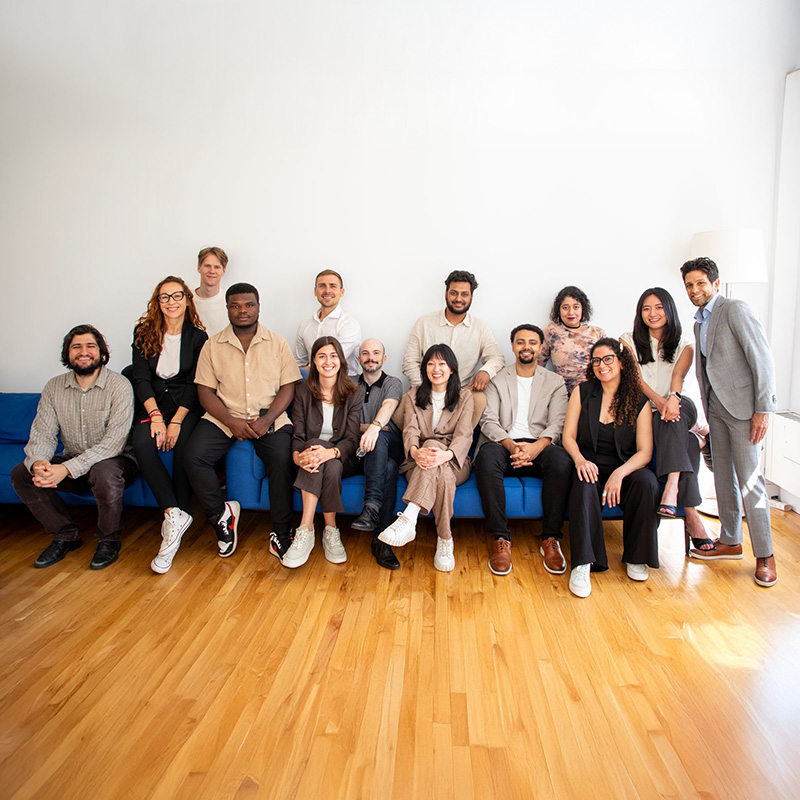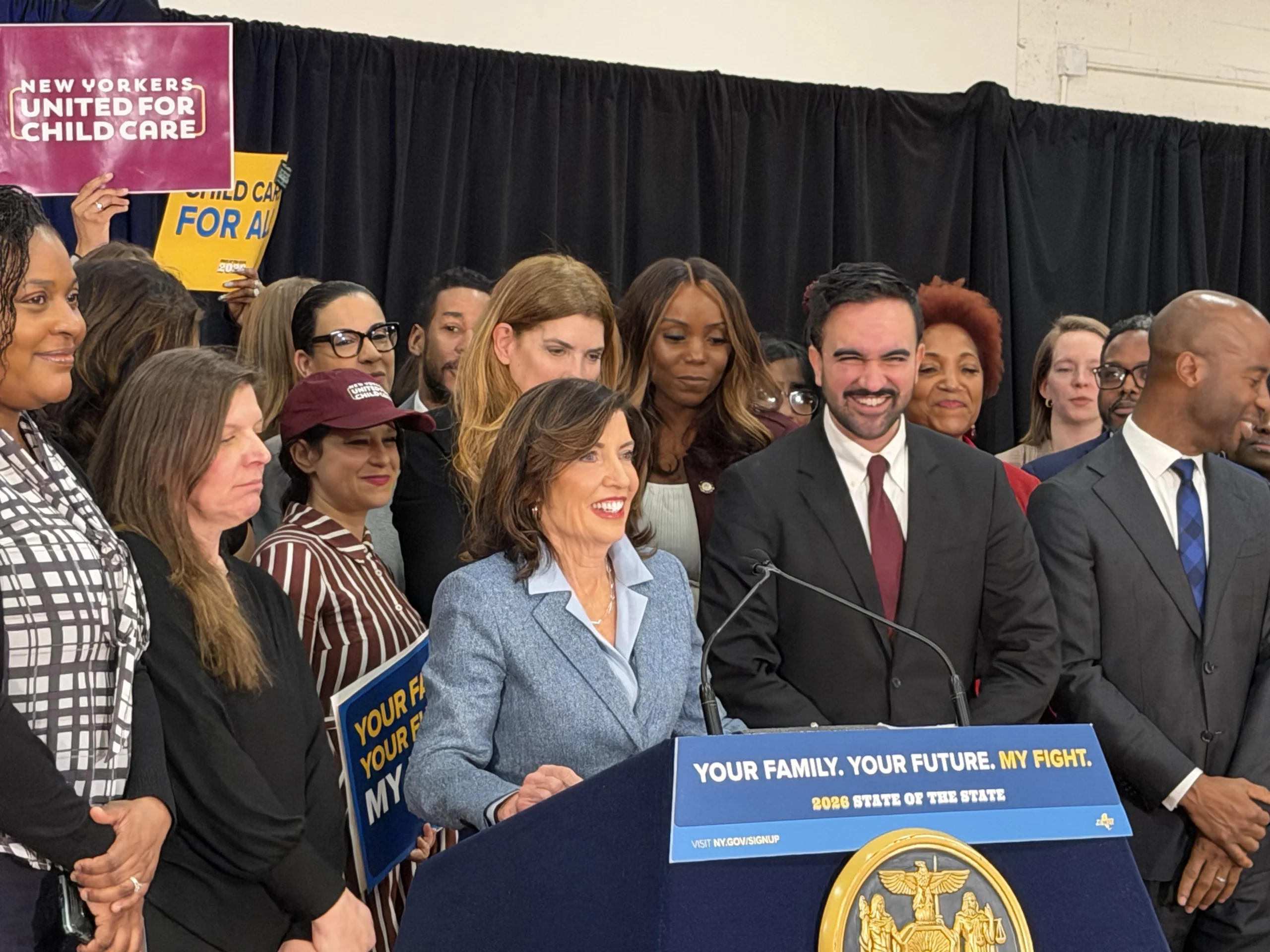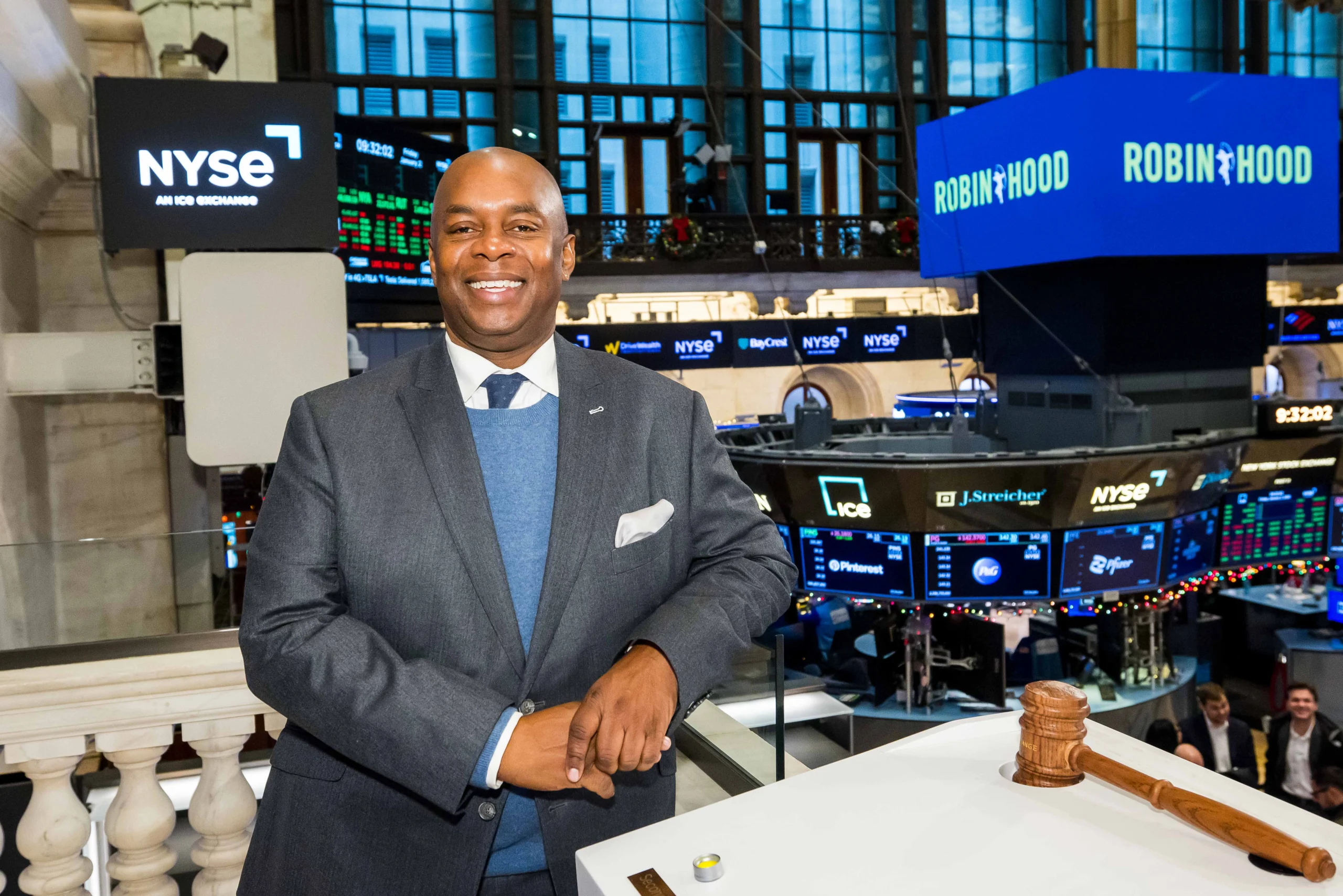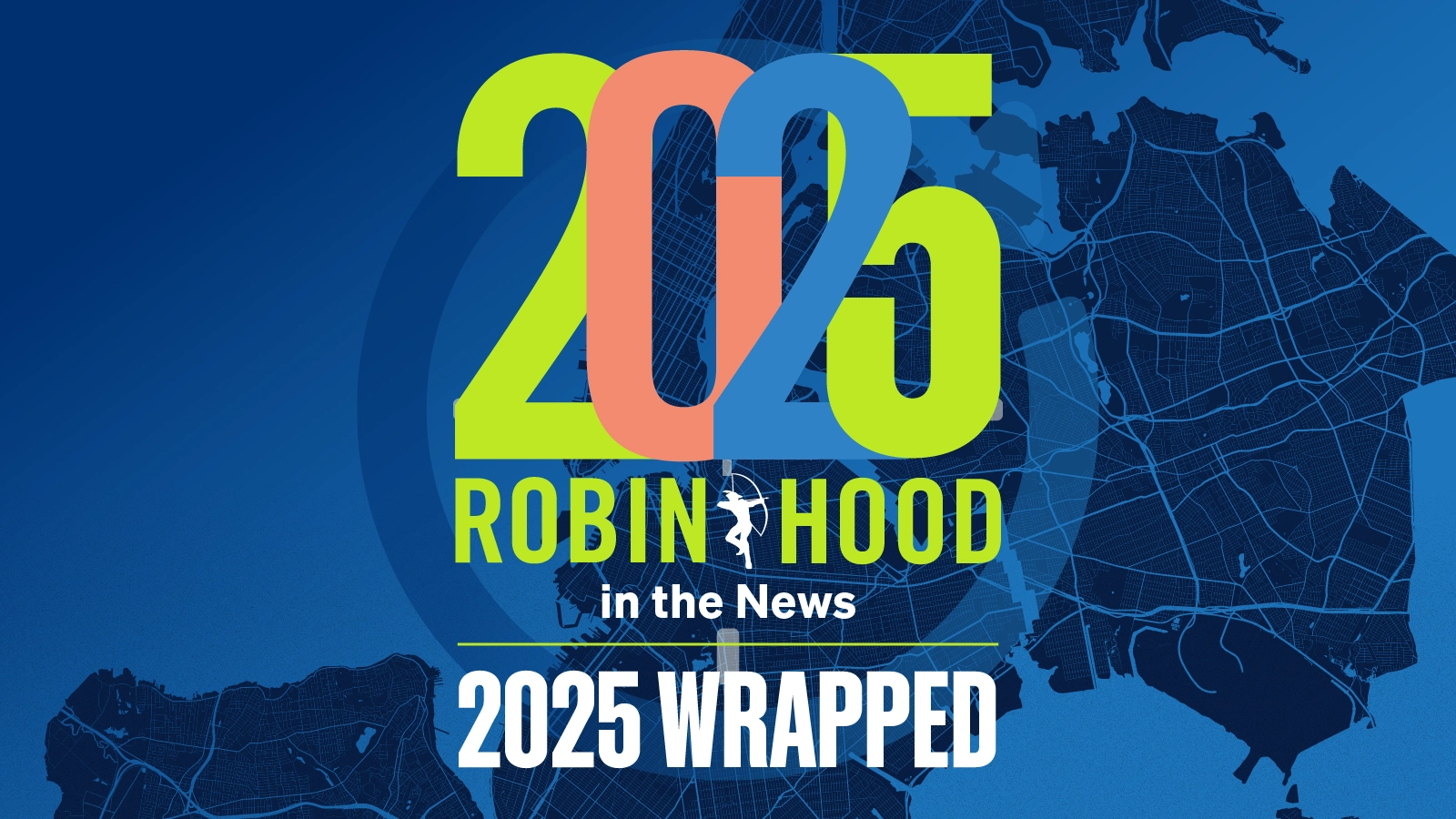Jan 22, 2026 Press Release
Robin Hood Released Nearly $43 Million in Poverty-Fighting Grants During 2025 Fourth Quarter – Bringing Total Yearly Investments to $140 Million
2025 becomes Robin Hood’s highest grantmaking year without relief funding.
Robin Hood, New York City’s largest local poverty-fighting philanthropy, announced it made $42.6 million in Q4 2025 investments to combat poverty across the city’s five boroughs. The grants were made to fuel direct service work at 108 organizations serving low-income New Yorkers. During 2025, Robin Hood invested more than $140 million in programs and initiatives that seed opportunities for 4.6 million low-income New Yorkers, including over 2 million who live in poverty.
“In a year when one in four New Yorkers lived in poverty, and the cost of essentials continued to climb, Robin Hood increased our support, because we know that real progress requires real investment,” said Matthew Klein, Chief Program & Impact Officer at Robin Hood. “In the fourth quarter alone, we made 122 grants —backing organizations that help families weather today’s crises while building durable pathways to stability and upward mobility, from the earliest years of life through affordable housing for adults. With more than $140 million invested throughout 2025, this marked our largest grantmaking year outside the extraordinary moments when we activated our Relief Fund. Given the challenges New Yorkers are facing, it’s more important than ever to invest in what works.”
Robin Hood’s Q4 2025 docket included 122 grants to 108 community partners, including 97 nonprofit organizations. These investments support high-quality education, financial stability, stable housing, thriving communities, health, and career advancement—all core domains of human investment necessary to enable low-income New Yorkers to reach and exceed milestones associated with upward economic mobility—as well as capacity building and cultivating the use of data.
Grants by Category
- High-Quality Education: During Q4, 38 grants totaling $19 million will reach students attending district and charter schools with high-quality academic and college-advisment programming, accelerate students’ early literacy skills through A.I.-powered tools, improve kindergarten readiness for young children with family welfare system involvement, train college students to deliver supplemental instruction shown to improve literacy outcomes in Pre-K classrooms, increase four-year college enrollment and bachelor’s degree completion through dual-enrollment courses at high schools with high rates of poverty, and more.
- Financial Stability: 29 grants totaling $9.3 million will help eligible low-income New Yorkers more easily access public benefits that provide independence and longer-term stability. Grants support New York City’s efforts to integrate comprehensive benefits access within the Administration for Children’s Services (A.C.S.) and juvenile justice systems, develop and pilot an A.I.-enabled tool that helps medically qualified New Yorkers easily apply and enroll in Social Security Disability Insurance, provide legal services that support low-income families in New York City, and supply meals to individuals living in poverty.
- Mental & Physical Health: 12 grants totaling $3.6 million will launch and scale an initiative providing care to women at risk of developing cardiovascular disease during and after pregnancy, help New Yorkers easily access community-based respite care, improve the mental health and well-being of adults and children in the Bronx including child asylum seekers, continue support for families at federally qualified health centers across Chinatown and Flushing through an “enhanced” HealthySteps program, and more.
- Career Advancement: 21 grants totaling $5.4 million will train formerly incarcerated individuals for jobs and apprenticeships in the construction and building trades, provide high-quality skills training to young adult migrants and asylum seekers who have Temporary Protected Status and place them in culinary sector jobs earning $18 per hour, and establish the GreenLaunchPad Initiative, a coalition of Con Edison subcontractors and workforce development providers that aligns job training with the needs of employers.
- Stable Housing & Thriving Communities: 19 grants totaling $4.3 million will support community-based legal services aimed at preventing the displacement of low-income communities of color, support technical assistance to scale a new affordable housing program at the NYC Fund to End Youth and Family Homelessness, support an initiative aimed at preserving deeply affordable senior housing, provide legal representation and social work services for adolescents and young adults who are aging out of foster care and more.
- Capacity Building & Data: 3 grants totaling $700,0000 to work with the Urban Institute to estimate the benefits of four new program areas, sponsor an economic mobility conference with the Center for an Urban Future, and provide general operating support to Vital City for evidence-based reporting that promotes informed public discourse.
About Robin Hood:
We are NYC’s largest local poverty-fighting philanthropy and since 1988, we have invested nearly $3 billion to elevate and fuel New Yorkers’ permanent escapes from poverty. In 2024, through $129.5 million in grantmaking with 285 community partners, we created pathways to opportunities out of poverty through our strategic partnerships on child care, child poverty, jobs, living wages, and more. We are scaling impact at a population level for the 2 million New Yorkers living in poverty. At Robin Hood, we believe your starting point in life should not define where you end up. To learn more about our work and impact, follow us on X @RobinHoodNYC or go to robinhood.org.
Media Contact
Crystal Cooper, Deputy Director of Communications, Robin Hood, press@robinhood.org



